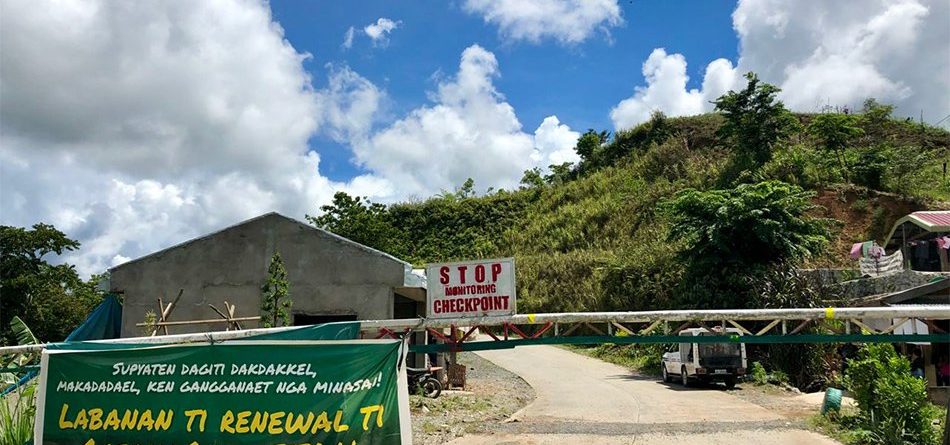Mining firm halts operations in Vizcaya as LGU, NGOs continue ‘blockade’
By Kristine Sabillo
An environmental group on Wednesday called the suspension of operations of a mining company in Nueva Vizcaya “a hard-fought victory.”
Australian-Canadian company OceanaGold Corporation, in a statement on Tuesday, announced that it will have lower output following its suspension of operations at its gold and copper mine in Didipio, Nueva Vizcaya.
“With the timing of the Court of Appeals injunction decision uncertain, and efforts to finalize a renewal of the FTAA (Financial or Technical Assistance Agreement) ongoing, we have no other choice but to temporarily suspend production at Didipio,” Mick Wilkes, President and CEO of OceanaGold said in a statement.
The company also cited a “local government unit blockage impacting operations in the Philippines.”
Reuters reported that OceanaGold requested for the renewal of its operating license last year but it was blocked by the local government because of environmental concerns.
In the past months, anti-mining and environmental groups have been protesting against the corporation.
And while the Mines and Geosciences Bureau has agreed that the company should be allowed to operate because of its application to renew its FTAA, Nueva Vizcaya Governor Carlos Padilla has questioned the bureau’s opinion.
Asked for a reaction to the suspension of mine operations in Didipio, Padilla told ABS-CBN, “The announcement of OceanaGold is misleading. The suspension is not upon their unilateral decision. It is simply because their FTAA has expired.”
Operasyon ng minahan sa Nueva Vizcaya na paso ang permit, inalmahan
This “barricade” went up two days after the lapse in June 2019 of OceanaGold’s FTAA, a mining license granted to OceanaGold under the Mining Act of 1995.
According to reports, the local government and anti-mining groups have been manning a checkpoint to prevent OceanaGold from operating without an FTAA.
Environmental group Kalikasan People’s Network for the Environment (Kalikasan PNE) said this is based on a restraining order issued by the local government. The checkpoint has also been augmented by a barricade formed by community groups.
In a statement, Kalikasan’s national coordinator Leon Dulce called on the Duterte administration “to follow suit by rejecting Oceanagold’s contract renewal with finality and returning the mineralized lands to the indigenous communities who rightfully own the land.”
The group asserted that the lapse of OceanaGold’s FTAA last June “meant the tenement area should have returned to the effective ownership of the State, which in turn is obliged to return the land to the ancestral domain of the indigenous Tuwali-Ifugao communities.”
Dulce said the government should respect the indigenous groups’ right to self-determination over their land. He also said OceanaGold must ensure that workers find secure jobs and that the area undergo environmental rehabilitation.
Meanwhile, OceanaGold CEO Wilkes said in the statement, “The operations will remain in a state of readiness for re-start and the health and safety of our employees will continue, as always to be a top priority. We also remain actively engaged with the national government and our regulators to finalise a renewal of the FTAA and secure the long-term future of the best mining operation in the Philippines.”
President Rodrigo Duterte can decide to grant OceanaGold an FTAA based on the endorsement of the MGB and the Department of Environment and Natural Resources.
But in a phone interview, DENR Undersecretary Benny Antiporda said the company needs “to communicate with the local government to see what they can do in terms of mitigation of the said mining site.”
“There are a lot of grievances being cited by the locals wherein until this very moment, they don’t have a clear answer on that,” Antiporda said.
Kalikasan said that OceanaGold’s operations have negative effects on the forest and bodies of water in Nueva Vizcaya. It claims that an unsafe concentration of heavy metals has been detected in the water – be it for irrigation or the river. Kalikasan also said that endemic species are being affected because of the deforestation and other environmental impacts caused by the mining operation.
Source: ABS CBN News


